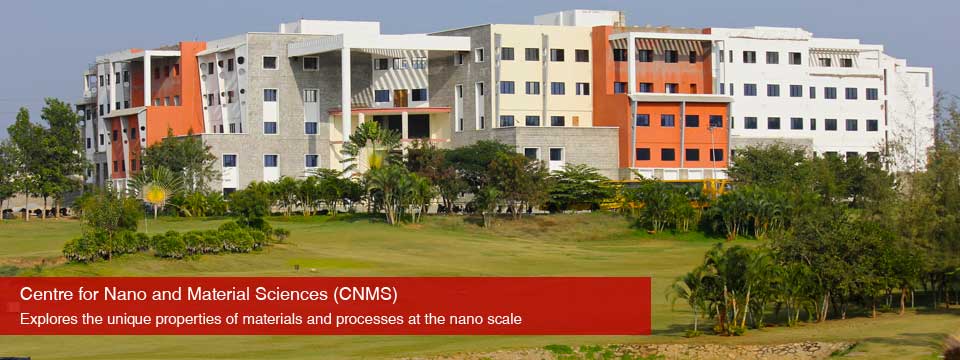Research in the thematic area of cancer
Cancer, now a universal term is a cluster of diseases accompanied with the abnormal and uncontrolled growth of cells which usually spreads to other organs/parts of the body. According to the recent WHO survey, in 2018, the world witnessed about 9.6 million deaths due to cancer alone. The cancer burden has risen to 18.1 million new cases in 2018 and it is estimated that 1 in 5 men and 1 in 6 women develop cancer at least once in their lifetime with the mortality of 1 in 8 men and 1 in 11 women globally. Alarmingly, more than 50% of cancer deaths occur in Asia region in which India is the major contributor with about 1.2 million new cancer cases and about 0.8 million deaths in 2018. Lung cancer, Breast cancer and colorectal cancers are the most prevailing type of cancers and the numbers of these cases are greatly increasing year by year. In 2018, the Food and Drug Administration (FDA) has approved 47 new drugs for treatment against many cancers out of which 20 of them are already commercially produced in 2019 by various pharmaceutical companies. Crizotinib, Ipilimumab, Pexidartinib, Pembrolizumab are a few to name which have very recently got approval for usage as chemotherapeutic drugs. All the successful chemotherapeutic drugs come with a wide variety of side effects, toxicities and limitations in their actions. Immunosuppression, intestinal infections, nausea, vomiting, anorexia, diarrhoea, abdominal cramps, constipation, anemia, fatigue and hair loss are the noticeable side effects which have been experienced by patients following chemotherapy. In few cases, cardiotoxicity, hepatotoxicity and nephrotoxicity are induced by such drugs.
Through our research in organic and inorganic chemistry, we are trying to develop efficacious anticancer drug like candidates. Some of our published works given below:
Title: In vitro apoptosis-induction, antiproliferative and BSA binding studies of a oxidovanadium(V) complex, Journal of Trace Elements in Medicine and Biology, 2019, 51, 176-190. https://doi.org/10.1016/j.jtemb.2018.10.019
Authors: Manasa Kongot, Neeraj Dohare, Dinesh S Reddy, Neha Pereira, Rajan Patel, Mahesh Subramanian, Amit Kumar
Highlights:
- Novel oxidovanadium complexes viz. [VVO(OCH3)(hpdbal-sbdt)] (1) and [{VVO(hpdbal-sbdt)}2µ−O] (2) were synthesized.
- The complex 2 exhibited in vitro antiproliferative and apoptosis induction activity against MCF-7 and A549 cancer cells.
- The bioactive compound 2 was found to be stable at physiological pH atmosphere.
- Compound 2 interacted with BSA protein in a facile manner without significantly disrupting its secondary structure.
Title: Potent drug candidature of an ONS donor tethered copper (II) complex: Anticancer activity, cytotoxicity and spectroscopically approached BSA binding studies, Spectrochimica Acta Part A: Molecular and Biomolecular Spectroscopy, 2019, 212, 330–342. https://doi.org/10.1016/j.saa.2019.01.020
Authors: M Kongot, D Reddy, V Singh, R Patel, NK Singhal, Amit Kumar
Highlights:
- A novel copper (II) complex with ONS tridentate donor ligand backbone was developed.
- The copper complex was found to be considerably effective as an in vitro anticancer agent against cervical adenocarcinoma (HeLa) cells.
- The activity exhibited by the compound was significant than the standard cisplatin drug and reported anticancer copper complexes.
- The copper complex was found to be less cytotoxic to healthy human embryonic kidney cells (HEK-293) with CC50 > IC50.
- Multi-spectroscopic investigations concluded that the bioactive copper complex interacted with BSA carrier protein in a significant and facile manner.
Title: ONS donor entwined iron(III) and cobalt(III) complexes with exemplary safety profile as potent anticancer and glucose uptake agents, New Journal of Chemistry, 2019, 43, 10932-10947.
https://doi.org/10.1039/C9NJ00883G
Authors: M. Kongot, D. Reddy,V. Singh, R. Patel, N.K. Singhal, Amit Kumar
Highlights:
- Two new compounds, [FeIII(OH2)(OMe)(Hhpdbal-sbdt)2] (1) and [CoIII(OH2)(Cl)(Hhpdbal-sbdt)2] (2) were developed.
- Both compounds 1 and 2 exhibited significant antineoplastic behavior against Human cervical cancer cells with IC50 value of 4.61 µM and 4.70 µM respectively.
- The cobalt complex 2 demonstrated excellent glucose uptake (89.83%).
- The CC50 value of complexes 1 and 2 were calculated to be 412.68 μM and 473.17 μM respectively which deliberated the non-toxic nature of the candidates.
- The compounds under study were found to be sufficiently stable at physiological pH conditions and at lower concentrations, they did not affect the protein structural integrity significantly.
|



